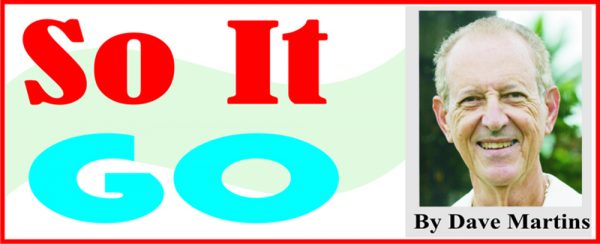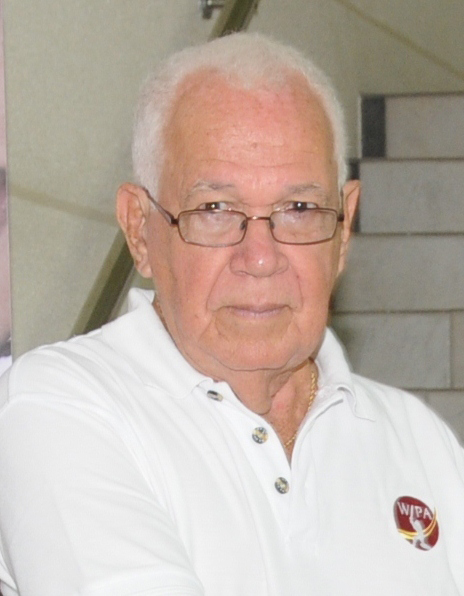 I have been heard in recent times beating the drum for Caribbean people to take more notice of the achievers among us, but it is not a recent obsession. It was actually something very much in my mind when I started the Tradewinds band in Toronto in 1966, and as this is being written, the word is out that one such achiever will be honoured shortly in Jamaica as the legendary cricket broadcaster, Joseph “Reds” Perreira, will be honoured by the West Indies Cricket Board (WICB) in a tea-time ceremony at Sabina Park during the 2nd Test of the upcoming WI/India series. In the words of West Indies Cricket Board leader Ricky Skerritt, “We would like to congratulate ‘Reds’ for his outstanding commentary… over the last 60 years. He has been an exemplary broadcaster on both regional and international levels for many years and is deserving of this recognition as one of the most notable voices of West Indies cricket.” And former Trinidad batsman Alvin Corneal, himself a commentator, wrote his congrats to Reds, saying, “I applaud the West Indies Cricket Board for presenting this award to you, especially in the midst of a cricket tour. My friend, you have left a legacy to the journalists, present, and future, with your absolute expression of descriptions of the great game and bringing many radio listeners to a picture which reflects positively to your voice. Congratulations to you and my sincere hope that you continue your contribution to our Caribbean society. I am proud of you. ”
I have been heard in recent times beating the drum for Caribbean people to take more notice of the achievers among us, but it is not a recent obsession. It was actually something very much in my mind when I started the Tradewinds band in Toronto in 1966, and as this is being written, the word is out that one such achiever will be honoured shortly in Jamaica as the legendary cricket broadcaster, Joseph “Reds” Perreira, will be honoured by the West Indies Cricket Board (WICB) in a tea-time ceremony at Sabina Park during the 2nd Test of the upcoming WI/India series. In the words of West Indies Cricket Board leader Ricky Skerritt, “We would like to congratulate ‘Reds’ for his outstanding commentary… over the last 60 years. He has been an exemplary broadcaster on both regional and international levels for many years and is deserving of this recognition as one of the most notable voices of West Indies cricket.” And former Trinidad batsman Alvin Corneal, himself a commentator, wrote his congrats to Reds, saying, “I applaud the West Indies Cricket Board for presenting this award to you, especially in the midst of a cricket tour. My friend, you have left a legacy to the journalists, present, and future, with your absolute expression of descriptions of the great game and bringing many radio listeners to a picture which reflects positively to your voice. Congratulations to you and my sincere hope that you continue your contribution to our Caribbean society. I am proud of you. ”
It is, sadly, part of our history that we often don’t pay homage to the outstanding ones among us, and the Reds Perreira story is a prime example. Let me declare up front that Reds and I are family. My father, Joseph Francis Martins, a Pomeroon farmer, prior to marrying my mother, Zepherina Barcellos from Hague, had been married to a Pomeroon De Silva lady, and a daughter, from that first marriage, is Reds’ mother, Claudia Perreira. I’m not sure exactly what that makes our relationship – Reds says I’m his uncle, I will settle for that. At any rate, family or not, Reds’ career as a sports broadcaster and organiser is worthy of adulation, from me or from whoever has a platform.
His broadcasting career begins officially in 1961 when he did his initial First Class match at Rose Hall, with British Guiana (we’re going back here) taking on Trinidad and by 1971 he had graduated to the top rung as he covered the First Test in the West Indies/India series with the match at Bourda. Coming up, critical for a broadcaster, Reds overcame a childhood stammer (he credits his mother for much of his success in that area) and an early radio colleague cites Perreira’s determination as well.
Looking back on those early years, Reds remembers a major break coming in 1973, when he was selected to be part of the broadcast team covering WI/Australia in the Jamaica and Barbados Test matches and in the subsequent Guyana Test. “My first trip to Australia was in ’75-’76 and there were 11 other tours Down Under following. Also, the first World Cup, with the late Tony Cozier and myself in the booth, was a major opportunity,” he says. His passport must have been quite a sight, as he then covered West Indies tours to India, Pakistan, Sir Lanka, New Zealand, Zimbabwe, and South Africa. He did the Kerry Packer Series in Australia in 1978 and when they came to the West Indies in 1979. Reds even remembers a charity match at the impressive Sky Dome stadium in Toronto for the United Way organisation where a number of West Indian cricketers played. It has been quite a journey, as the upcoming match in Jamaica against India, will be Reds’ 150th Test Match behind the microphone. He has done 5 World Cups and over 200 one-day internationals. Family or not, he deserves to be singled out.
Hearing of the upcoming event honouring Reds, sports specialist Desmond Roberts sent him a congratulatory note:
“Dear Reds: I am not sure of the details of the award, but I do know that for me, you are the most persistent pursuer of knowledge, style, relevant conditions, the politics and the personalities involved in cricket and all sports. You were never afraid of acknowledging not knowing and thereafter striving to learn your craft with diligence and application.
“I remember you sending me clever ideas from Australia that I implemented in track and field as well as your motivational talks to my athletes at the Junior Carifta Games.
“You have beaten stammering and mastered sports and games with which you were not entirely familiar in order to cover events about which people in the Caribbean wanted to know.
“In brief, whether it is from Guyana, Barbados, or the entire Caribbean, you deserve to be applauded for your involvement with sports. And as Americans tell their veterans ‘Thank you for your service’.”
And as news of the upcoming WICB honour spread, former West Indies keeper Deryck Murray sent a note: “Congratulations on your award, very well deserved.” And legendary West Indies fast bowler Michel Holding emailed: “Hi Reds: Congratulations on achieving the 150 test match milestone and being honoured by the West Indies Cricket Board. It has been a long and illustrious career during which time you have helped many to get on the ladder, including myself. You and Tony Cozier have been exemplary stalwarts for decades. All the best, Mikey.”
Given the range of venues and the length of time he has been broadcasting, what has been the most exciting match he has seen? Reds didn’t hesitate: “My first World Cup 1975. Edgebaston. Pakistan had made 267. In our turn, West Indies were 204 for 9 when Andy Roberts, our fast bowler, came out to bat; the match was essentially lost, but we started picking up runs, and it got closer; the tempo was building; everybody in the crowd was standing up with the tension; then with a few balls left, Roberts pushed a quick single to mid wicket for the winning run; he made the run and didn’t stop running; he ran right off the ground and into the pavilion. It was bedlam. I have never seen anything like it.”
Looking back, Reds is high in admiration of his broadcast pal, the late Tony Cozier. “A lot of my success I owe to him, and to my wife Zandra and my daughter Kimberly – they are my biggest supporters.”
So if you’re in Jamaica for the WI/ India Test, when they roll out the honouring of Reds at the tea interval, stand up and tell the folks near you, “Da is wan o’ we boys….all you clap loud, yeah.”






